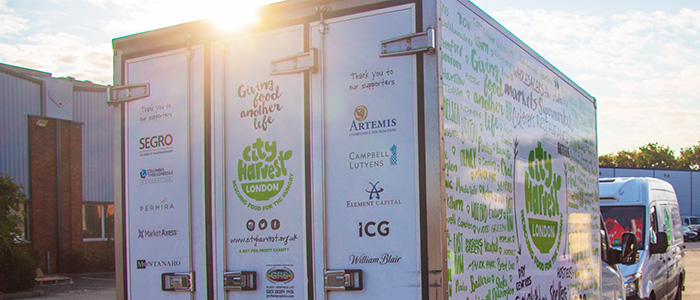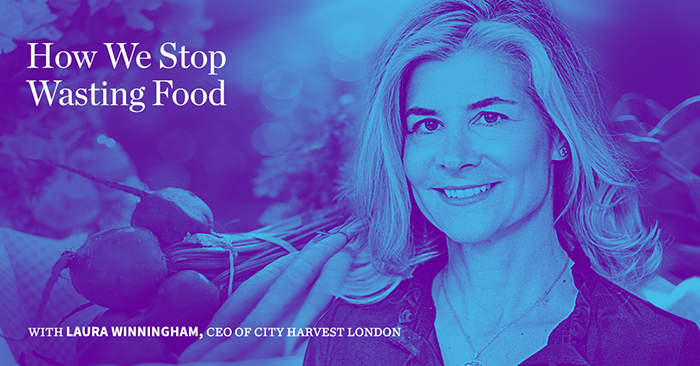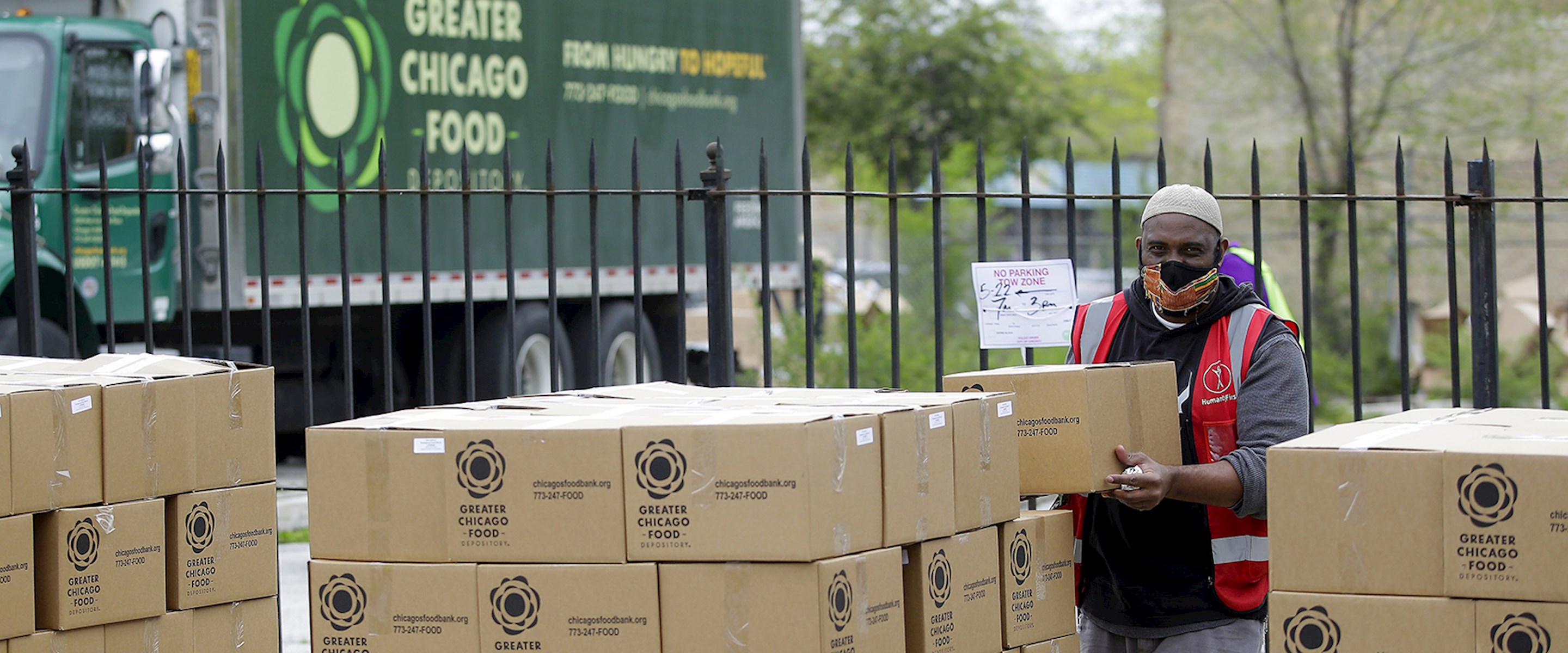While the COVID crisis impacted every household in the U.S., nothing has brought home the impact of the crisis more than the growing number of families who are now wondering where their next meal is coming from. They are turning to food banks for support.
Feeding America, the nation’s largest network of food banks, estimates that 50 million Americans, including 17 million children, will struggle with hunger in 2020. Consumer Reports surveyed 2,000 grocery shoppers and reported in November that one out of five said they had used a food pantry or food bank since the pandemic. Evening news broadcasts have shown long lines of cars waiting at food banks at many locations across the country for months as millions of Americans are without jobs.
Since March, William Blair has been matching employee donations and contributing resources and volunteer time to local food banks in the U.S. and Europe. The largest funding has gone to the Greater Chicago Food Depository and City Harvest in London. But in December, the firm expanded its support to food banks in each of the 16 communities around the world where William Blair offices are located.
Kate Maehr, CEO of the Greater Chicago Food Depository, said the support from William Blair and other donors has made it possible to provide not just nourishment but comfort to the many families served who have been hit hard by the pandemic. During its June-to-July fiscal year, the Food Depository distributed over 93 million pounds of food, the equivalent of 77.5 million meals.
“Never in our organization’s 41-year history have we seen such an increase in the number of people who need food assistance,” Maehr said.
Laura Coy, philanthropic strategist for William Blair, said the ability of the Food Depository and others to deal with the rising demand has been monumental.
“With each food bank we have been working with, I’ve been so impressed with how sophisticated they have become in managing their supply chain and raising donations to increase capacity,” Coy said. “And also in the dignity I’ve seen with neighbors serving neighbors. The partnership and kindness are inspiring.”
The Food Depository is a partner with Feeding America, which says that from early March through October food banks nationwide distributed 4.2 billion meals, with nearly half of the people served for the first time.
The depository's food resources mainly come from local grocery stores, wholesalers, food manufacturers, and the U.S. Department of Agriculture. The food is then distributed to 700 Chicago-area partners, including food pantries, soup kitchens, homeless shelters, community centers, after-school programs, and local health clinics.
In March and April, there was a lot of panic buying by consumers, resulting in fewer food donations from grocery stores and food manufacturers. That’s when the government stepped in to expand its deliveries, helping the Food Depository to meet local needs. Before the pandemic, only a third of Food Depository’s food supplies originated at USDA. Now, half of its expanded supplies do, according to its annual reports. But USDA’s expanded food box program is set to expire at the end of December.
“I’m concerned about the volatility in the supply chain as we head into the colder winter months,” Maehr said. “There’s no denying the immensity of this challenge.”
City Harvest serves London’s 14 boroughs
Across the pond, City Harvest London is well-known for its food rescue program—collecting surplus foodstuffs from restaurants, grocers, manufacturers, wholesalers, hotels, and caterers. City Harvest delivers meals to the hungry by van across the city. Pre-pandemic, City Harvest was sourcing 30 tons of food a week, which equates to delivering 65,000 meals. By late July, collections had stepped up to 70 tons a week to provide 150,000 meals.

The group’s 14 vans traverse all of London’s 14 boroughs to collect and deliver food to charities serving the hungry. City Harvest CEO Laura Winningham says every day is different. Sometimes the group gets a last-minute call from a catering company to pick up unused meals or a restaurant with extra food it can’t use. And each charity has different needs—constituents with dietary restrictions, open different times of day, some serve lunch others dinner.
“So, if we’re late we miss the window of opportunity for them to accept the food,” Winningham said in a podcast with William Blair’s investment management team. “It takes a lot of human interaction … humans talking to each other to make it happen.”
She said City Harvest has been able to expand its services during the COVID pandemic, with the help of more corporate engagement from firms like William Blair. On Giving Tuesday, for example, City Harvest launched “The Big Give,” which has raised £76,232 toward its goal of £51,000 to deliver 200,000 meals to children and their families this Christmas.
There is a growing commitment among corporations to help solve local inequities in addition to global causes they already may be supporting, Winningham added.
“At City Harvest we have been aware there is tremendous hunger that people don’t know about, it’s the hidden hunger, it’s the working poor,” said Winningham. “I think this crisis has brought that to light. We’re hoping with this newfound wisdom—there will be more interest, more awareness about both food poverty and waste.”




